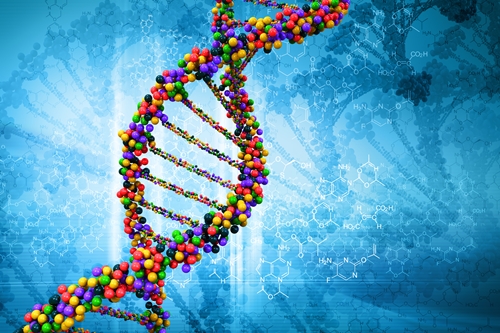29 August 2016. An artificial form of marine bacteria is being created to speed experiments in biotechnology labs on cloning and design of new therapeutic proteins. The science behind the new microbe, named Vmax by its developer Synthetic Genomics Inc. in La Jolla, California, is described in today’s issue of the journal Nature Methods (paid subscription required).
Synthetic Genomics designed Vmax as an alternative to E. coli bacteria, popularly known as a pathogen causing intestinal infections, but most strains are harmless and are used as a model for higher-order organisms. As reported in Science & Enterprise earlier in August, a research group at Harvard Medical School designed a form of E. coli with a simplified DNA for synthesizing substances not easily produced from nature, such as pharmaceuticals and chemicals.
The Synthetic Genomics team, led by company vice-president Daniel Gibson, took a different approach, namely starting with an organism with faster biological processes than E. coli. Their microbe of choice is Vibrio natriegens, a marine bacteria first found in salt marshes on barrier islands off the U.S. state of Georgia. Vibrio natriegens is particularly fast-growing and reproducing microbe that regenerates itself in less than 10 minutes.
“Despite the known drawbacks and shortcomings,” says Synthetic Genomics chief technologist Todd Peterson in a company statement, “scientists have been necessitated to use E. coli as a laboratory host primarily because there have been no suitable alternatives. We deployed our synthetic biology expertise to develop a new host strain that will drastically improve upon the traditional methods and tools.”
The Nature Methods paper describes genome engineering tools developed by Synthetic Genomics for modifying Vibrio natriegens bacteria for production of products based on biotechnology. Typical cloning projects can take several days with E. coli, say the authors. With Vmax, those timelines can be reduced to a single day. “We are in the process of designing and synthesizing new Vmax cells,” adds Gibson, “that operate at even higher efficiencies and productivity as we move toward a next-generation host for protein production.”
Synthetic Genomics formed a separate subsidiary, SGI-DNA, that commercializes the company’s synthetic DNA technologies. The company produces synthetic DNA and supporting materials, as well as develops technologies for producing synthetic genes and reagents. Synthetic Genomics company filed a U.S. patent for the Vmax technology.
Read more:
- RNA Technology Allows for Fast Vaccine Development
- Animal-Free Leather Company Gains $40M in Venture Funds
- Engineered Protein Advances to Treat Genetic Blood Disorders
- Genetic Techniques Quickly Build Crop Disease Resistance
- Antibody Treatment Designed for MERS Virus
* * *


 RSS - Posts
RSS - Posts
[…] Synthetic Biotech Research Microbe Developed […]